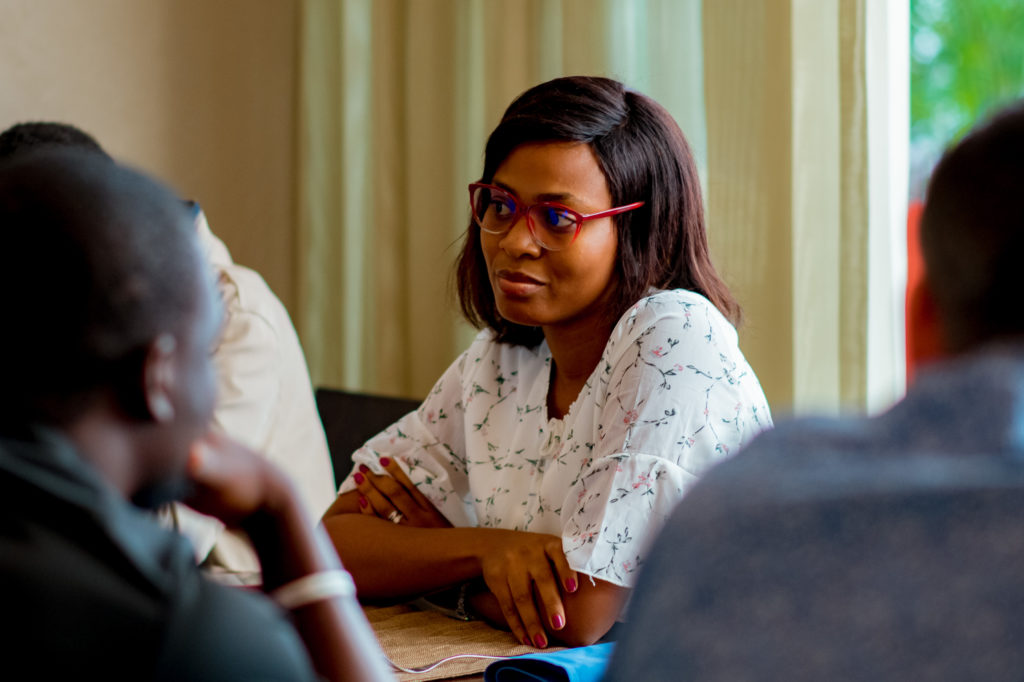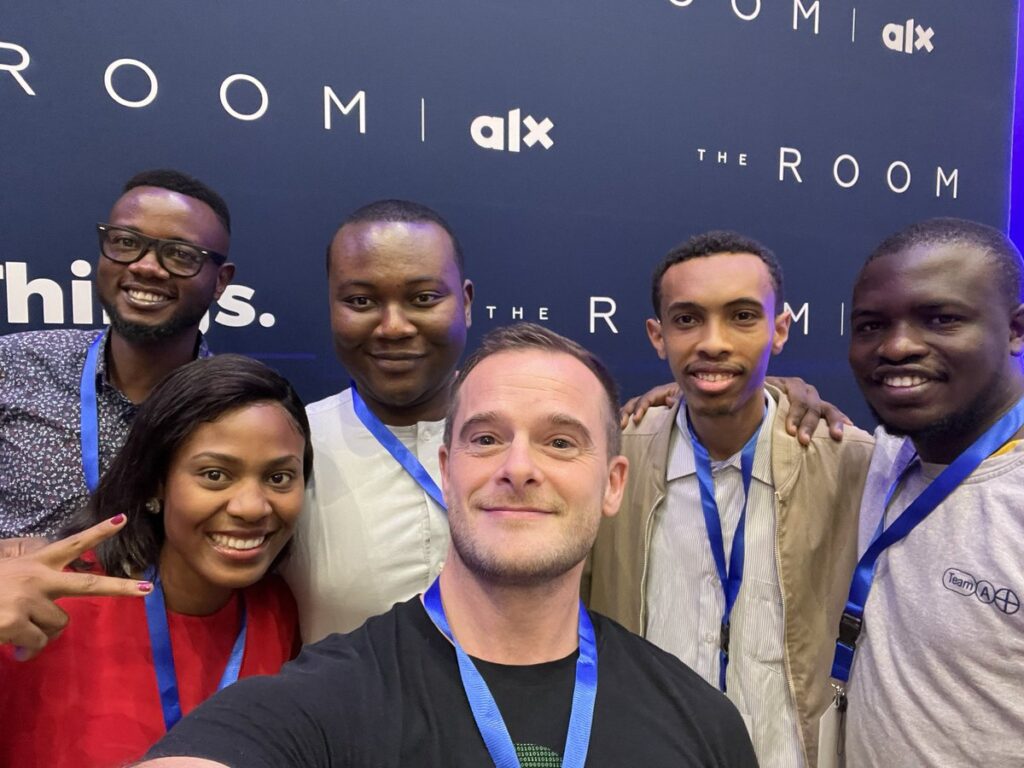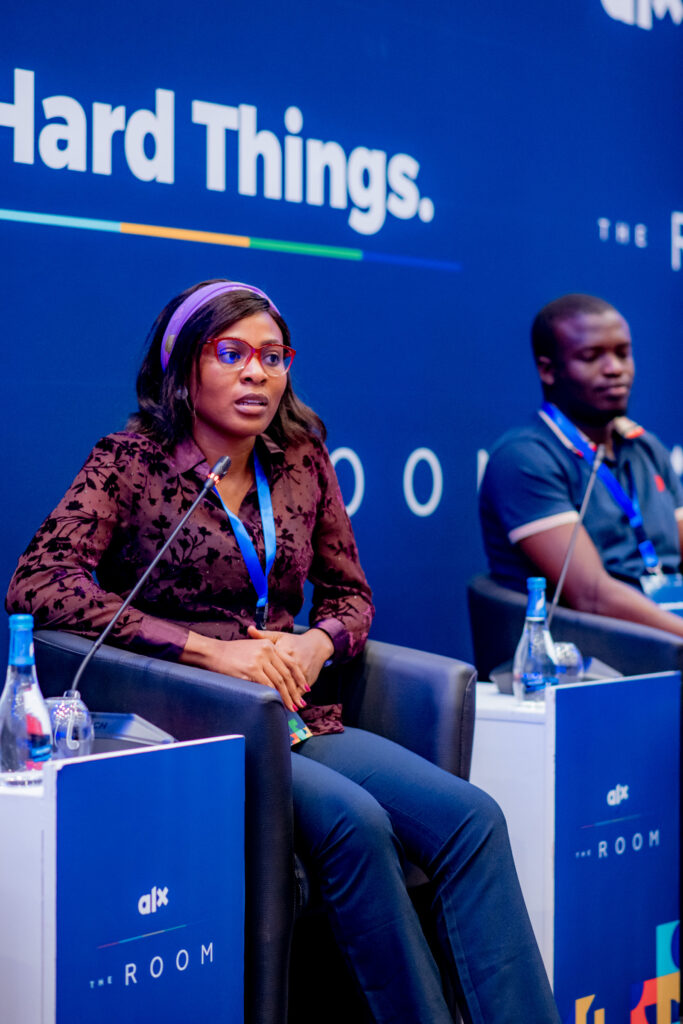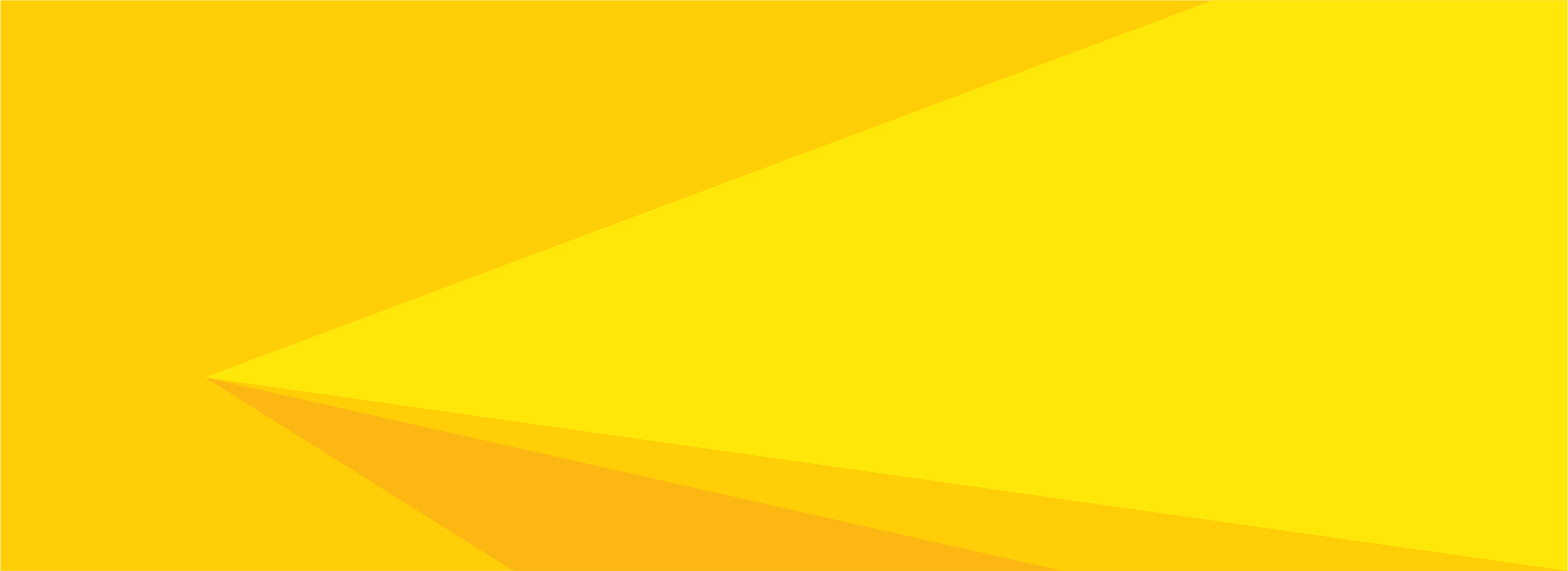The Mom Who Codes: A Spotlight Feature on Mayen Kalu, Winner of the ALX Challenge
- 10 Mar 2023
- 7 min read

In December 2022, ALX challenged thousands of learners in its Software Engineering programme to create visual images of their experience in the course using generative AI tools. Mayen Kalu’s winning image – “Mom Who Codes: The Untold Story” – depicts her inspiring experience as a wife, mother, university lecturer, and PhD candidate, going through the rigorous ALX Software Engineering programme. Mayen and other #ALXChallenge2022 winners got the opportunity to meet the ALX leadership and team at a gathering in Kigali. She talks to us about her life as a mom who codes, artificial intelligence, and doing hard things.
Tell us about your background and how you became interested in tech. What motivated you to join the ALX Software Engineering programme?
I didn’t start my career in tech, but I’ve always been a lover of technology. Growing up, my dad ran a business that used a lot of computers, so I got interested then, but didn’t pursue it. In 2021, I started a graduate study programme, and the research and analysis had a programming component. That was my first introduction to the R programming language, and I really enjoyed it. I decided to take it a bit further by enrolling in some virtual programming courses. My friend introduced me to ALX shortly after that, and the rest is history.
What have been some of the highlights of your journey with ALX so far?
A major highlight for me was when I received the Twitter notification from Fred Swaniker that my AI-generated image had been selected as a winner for the ALX SE Challenge. I was so excited! Meeting Fred, Julien and the rest of the ALX team in Kigali, and getting to physically experience the values and prospects of ALX were amazing as well.
What are some of your most important learnings from the ALX Software Engineering programme? How do you think they will impact your career journey in the future?

I know there will be points in my career or along my journey where the expected outcomes of whatever I’m working on may seem far or impossible; the skills I’ve picked up at ALX will definitely help me through those moments.
The SE programme has definitely changed my perspective about a lot of things. It has helped me become a better person and taught me to enjoy the learning process. I’ve learned the importance of endurance and having a growth mindset. I know there will be points in my career or along my journey where the expected outcomes of whatever I’m working on may seem far or impossible; the skills I’ve picked up at ALX will definitely help me through those moments.
I’ve also learned the importance of communication. We have to do a lot of communicating with other cohort members in the Software Engineering programme. Because of that, my interpersonal skills have improved significantly.
What are some of the biggest challenges you have faced in your training and how have you overcome them?
One of the major challenges for me was time management. There was so much to learn and so many deadlines to meet, and at some point, I was struggling. I made the drastic decision of quitting my role as a lecturer and terminating my PhD programme to really focus on the SE programme, and I don’t regret it. The SE programme is vital to my career and research area, and will help fuel my passion for technology to solve problems. After graduating from ALX, I hope to pursue a new PhD programme in Biomedical Engineering, and I’m confident the skills I’m picking up now will help me make significant contributions to that field.
What advice would you give a young woman who is interested in joining the ALX Software Engineering programme?

Tech is not a male or female thing; it’s a human thing. As long as you're smart and are willing to put in the work, the possibilities are endless.
I strongly believe that if women are given the opportunity to do 50% of what men do right now, especially with tech, the impact will be tremendous. We’re resilient, and we have an enduring spirit which the tech world could greatly benefit from. Tech is not a male or female thing; it’s a human thing. As long as you're smart and are willing to put in the work, the possibilities are endless.
For young women interested in the ALX programme, I think it’s a fantastic opportunity. Your success in the programme is largely dependent on your level of passion and interest. Personally, I had many other responsibilities before I joined the programme – I’m a mother, and a wife, and there were so many other things going on in my life. But I had an interest in understanding tech, and figuring out how to use it to solve problems. For women in similar situations, I would say go for it. The programme is partly virtual, so you have some liberty to work in your comfort zone, while juggling the other aspects of your life.
What excites you about the future of tech and the solutions it can create?
The number of tools that are developed every day to make technology work just like the human brain is mindblowing. AI and Machine Learning are truly the future.
What excites me about technology is the speed of development, its fast-growing impact on Science, and the fact that it can be applied in various fields. For example, the research project I recently worked on with a team was on single-cell analysis. We realised this area of research was developed in the early 2000s using state-of-the-art technology, and it was discovered that seemingly alike cells are actually different. Our skin cells are different, our brain cells are different and even our blood cells differ in molecular features. Technology made this discovery possible.
I’m also really interested in Artificial Intelligence. The number of tools that are developed every day to make technology work just like the human brain is mindblowing, and this can be applied to so many different areas – from medicine to business and beyond. The fact that you can use neural networks to make systems operate almost identically to the human brain is amazing. AI and Machine Learning are truly the future.
How do you aim to make a difference through your work and add value to the world once you've completed your training?
I’m interested in using technology to solve problems on a local and global scale. I hope to be able to collaborate with other talented people to develop solutions. I would also like to be able to mentor young people like me, who are trying to develop new skills, find their paths in life, and create world impact.
What do you see as your superpowers?

For me, ‘doing hard things’ means coming out of my comfort zone, and going beyond human limitations.
Being a woman, perseverance, curiosity and sleep!
What is your proudest achievement?
My son, Kendrick. He makes me so proud, and I am happy to be a mother to such a beautiful soul.
What is the best advice you've ever received?
The best advice I’ve gotten is from my husband. He encourages me to chase my dreams even when it doesn’t make sense to anyone and everyone, and do what makes me happy.
Finally, what does ‘Do Hard Things’ mean to you?
I kept hearing this phrase when I joined the programme, and it’s really interesting because I found myself in a situation where I had to ‘do a hard thing’. Quitting my job and PhD to focus on the ALX programme was really hard. It didn’t make sense to a lot of the people around me. For me, ‘doing hard things’ means coming out of my comfort zone, and going beyond human limitations.
ALX is proud to support women like Mayen Kalu to develop the most in-demand career skills that will power the future.
